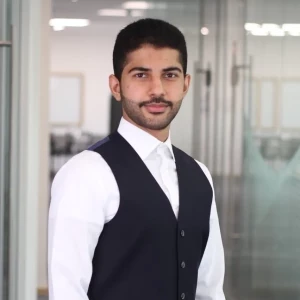Hey guys,
I will soon have my first Case Interview for a job. I practised approx. 50 cases alone. So, I wondered what it's like to to a case with the interviewer in real life. The interviewer reads the case and I take a minute to structure my thoughts and tell hime how I will approach and structure the problem? Can I take notes on my points and explain my thinking after that or should that be simultaniously? Can I do my calculations in detailed writing and should I explain every move (e.g. when calculating 910*840 - 128*240)? What do do (seriously) when I am stuck, how to ask for advice in that case?
I just can't imagine.. I watched many solution-videos on preplounge but I can't think of what to do in real life.. do I bring my own pen and pat (:D)?
Feeling so stupid right now.. but thank you in advince! Im grateful for every answer:)











